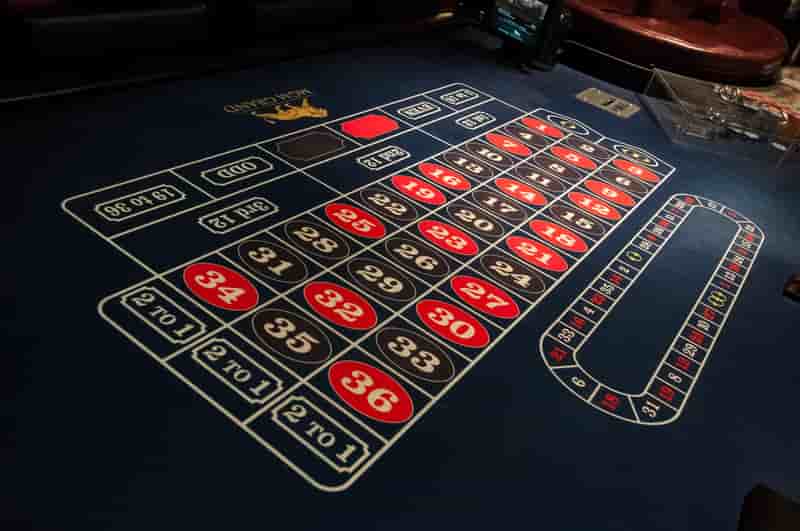Certainly, since you’re interested in comprehensive and detailed information, let’s dive deep into the subject of Crypto Roulette and its various variants.
What is Crypto Roulette?
Crypto Roulette is a digital adaptation of traditional roulette where players can place bets using cryptocurrencies. The game mechanics are generally the same; the key difference lies in the currency used for wagering and the blockchain technology that may be employed to ensure fairness.

Popular Variants:
- European Roulette: This variant has a single zero and numbers 1-36. It offers a lower house edge compared to American Roulette, making it a popular choice among players.
- American Roulette: Includes both a single zero (‘0′) and a double zero (’00’), thus increasing the house edge. Although less favorable for players, it remains widely played.
- French Roulette: This version is similar to European Roulette but comes with additional betting options and rules like ‘La Partage’ and ‘En Prison’, which can reduce the house edge further.
- Multi-Wheel Roulette: Multiple wheels are spun simultaneously, allowing you to place bets on several outcomes at once.
- Mini Roulette: A simplified version with fewer numbers, usually ranging from 0-12. While it’s quicker and easier to understand, it often comes with a higher house edge.
- Live Dealer Roulette: Played with a live croupier through a video link, offering a more authentic casino experience.
- Progressive Roulette: Features a progressive jackpot that accumulates over time, adding an extra layer of excitement and potential winnings.
- No-Zero Roulette: Eliminates the zero pockets altogether, effectively removing the house edge. However, casinos may impose specific rules to offset this.
Advantages of Crypto Roulette:
- Anonymity: Cryptocurrencies offer a higher degree of privacy compared to fiat currencies.
- Fast Transactions: Deposits and withdrawals are generally quicker.
- Lower Fees: Cryptocurrency transactions usually have lower fees than traditional payment methods.
Risks and Considerations:
- Price Volatility: The value of cryptocurrencies can fluctuate, affecting your potential returns or losses.
- Regulatory Uncertainty: Cryptocurrencies are often less regulated than fiat currencies, which could expose you to additional risks.
- Provably Fair Algorithms: Not all crypto casinos use provably fair algorithms, so make sure you choose one that does to ensure game integrity.
Strategy Tips:
- Manage Your Bankroll: Always set a budget and stick to it.
- **
Absolutely, let’s delve even deeper into the intricacies of Crypto Roulette. Since you’re interested in comprehensive coverage, I’ll expand on some of the topics and introduce new aspects for a more rounded view.
Betting Options and House Edge:
- Inside Bets: These are bets placed on specific numbers. They offer high payouts but come with lower odds. Types of inside bets include Straight-Up (single number), Split (two numbers), Street (three numbers), and more.
- Outside Bets: These bets cover larger sections of the wheel, like Red/Black, Odd/Even, or High/Low numbers. They have better odds but lower payouts.
- Call Bets: Primarily found in French Roulette, these bets are placed on sections of the wheel rather than the table. Examples include Voisins du Zéro and Tiers du Cylindre.
- House Edge: This is the mathematical advantage that the casino holds. For European Roulette, it’s approximately 2.7%, while for American Roulette, it’s about 5.26%. French Roulette can have a lower edge due to its specific rules.
Security and Fairness:
- Third-Party Audits: Reputable crypto casinos have their Random Number Generators (RNGs) and game algorithms audited by external agencies like eCOGRA or iTech Labs.
- Provably Fair Algorithms: These allow players to verify each spin’s fairness. The mechanism usually involves hashing techniques and seed numbers that players can use to check outcomes.
- User Reviews: In the crypto community, word-of-mouth and player reviews can be valuable indicators of a casino’s reputation for fairness and security.
Advanced Strategies:
- D’Alembert System: A safer betting strategy where you increase your bet by one unit after a loss and decrease it by one unit after a win.
- Labouchère System: Also known as the cancellation system, it involves writing down a sequence of numbers and betting the sum of the first and last numbers in the sequence.
- James Bond Strategy: A fixed betting system where you distribute your bets in a specific manner to cover more than half of the possible outcomes on the wheel.
Adaptations and Innovations:
- Crypto-Specific Promotions: Some casinos offer bonuses and promotions tailored specifically for crypto users.
- Social Features: Chat rooms, leaderboards, and multiplayer options can add a social dimension to online crypto roulette.
- Customizable User Interface: Advanced platforms may offer customizable tables and settings, allowing you to personalize your gaming experience.
History about roulette
The first Roulette appeared in France in the eighteenth century, when Blaise Pascal tried to create a perpetual motion machine, but since 1796 roulette has been played in its current form. In fact, we find a description of the game of modern roulette in a French novel from 1801. However, there is an earlier reference to the game of roulette, when the rules for New France (Québec) of 1758 expressly prohibited games such as “dice,” Hoca, Faro and roulette “.
In 1843, two French who ran a casino in Germany introduced the single 0 wheel to compete with other casinos that offered traditional roulette, including double zero.
In the 19th century, roulette spread across Europe and the United States and became one of the most popular and popular casino games. But gambling was quickly declared illegal everywhere except in Monte Carlo, and here the single zero variant of roulette became the official one in Europe. Over the years, it has been exported all over the world, except to the United States, where double zero roulette has remained dominant.
In the United States, double zero roulette spread in northern New Orleans and then west. And it is here that, due to rampant scams by both croupiers and gamblers, roulette ended up being placed on the top of the table to avoid devices hidden in the table or in the roulette itself. In addition, the layout has been greatly simplified.
At the beginning of the twentieth century, Monte Carlo was the only city with notable casinos, with the traditional French single zero roulette and Las Vegas with the American double zero roulette. However, casinos have started to flourish around the world since the 1970s and currently there are hundreds of casinos around the world other than roulette. Not to mention the spread of online casinos that have finally made the roulette game truly accessible to everyone.
